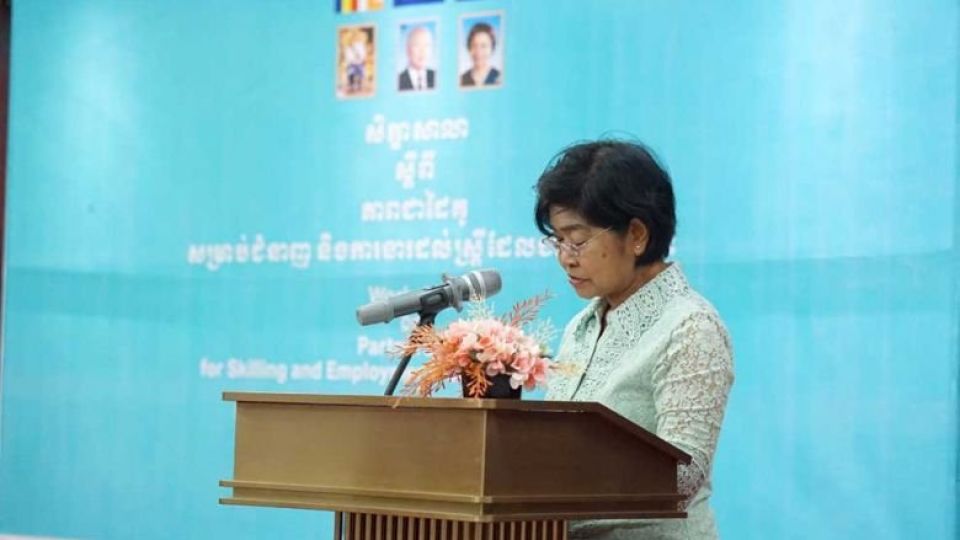July 19, 2023
PHNOM PENH – A high-ranking official from the Ministry of Women’s Affairs has stressed the need for rapid and effective intervention for victims of human trafficking. She warns that the face of human trafficking and sexual exploitation is increasingly complex.
Tes Chansaroeun, undersecretary of state at the Ministry of Women’s Affairs, stated that all involved parties have been striving to fulfil their mission to fight, suppress and tackle the trafficking and exploitation of women and girls.
Nevertheless, the nature of trafficking and sexual exploitation is continuously evolving and perpetrators have become skilled at evading laws, particularly given new trends in sex work through social media and online apps.
She spoke at a partnership workshop on equipping vulnerable women with skills and employment, facilitated by Nomi Network Cambodia last week.
“Because of the intricacy of these crimes, it is necessary to further enhance cooperation among all relevant partners to combat the issues of human trafficking by offering services and intervention to victims in a more efficient and timely manner,” she said.
Chansaroeun stressed that human trafficking is a modern form of slavery and a grave breach of fundamental human rights.
She noted that the trauma inflicted on victims and their families imposes significant economic and social burdens on all countries.
Women and girls, she explained, are particularly vulnerable to being trafficked for sex or coerced into domestic work.
Chansaroeun indicated that the government is committed to confronting human trafficking. It has formulated laws, policies, and national strategies to address these issues.
The government has amplified its collaboration with key stakeholders both domestically and internationally to counteract human trafficking in Cambodia.
The undersecretary also highlighted that the Ministry of Women’s Affairs has established essential strategies and initiatives as part of the fifth Neary Rattanak Strategic Plan and the Strategic Plan of the National Committee for Combating Human Trafficking (NCCT) from 2019-2023.
These strategies aim to uphold human rights and safeguard women and girls in Cambodia from all forms of violence, trafficking, and exploitation.
Following the signing of a memorandum of understanding in 2022, the ministry and Nomi Network have agreed to cooperate to share knowledge to improve the safety of migrant female workers before they depart for work.
The MoU focused on human trafficking. Both parties have sought to learn about basic skills development.
Ponn Samkhan, National Committee for Combating Human Trafficking secretary-general, indicated at the workshop that her committee has planned strategies to strengthen cooperation in formulating and implementing laws, policies, and legal documents.
“We have implemented all these strategies in the fight against human trafficking at the national and sub-national levels and, in collaboration with relevant ministries and institutions,” she added.
Supei Lui, Nomi Network vice-president and co-founder, said at the event that although Nomi Network has been working with the most marginalised community in India for many years, this is a new initiative of workforce development programmes implemented in Cambodia.
“We still have much to learn, build and connect, to help us close the labour gaps and bring economic empowerment to every community across the Kingdom. Above all, it’s crucial that we ensure the most marginalised communities and groups aren’t left behind, or made vulnerable to trafficking,” she said.


